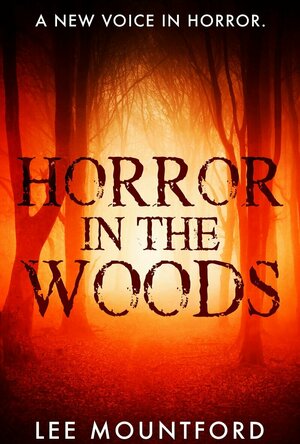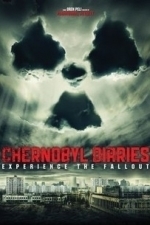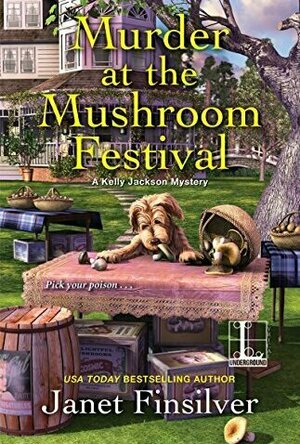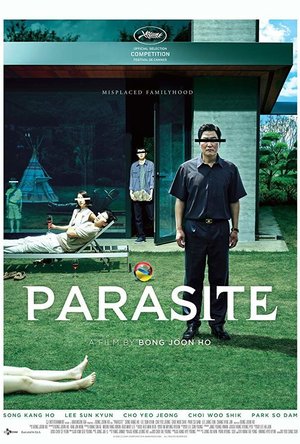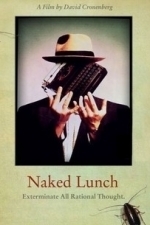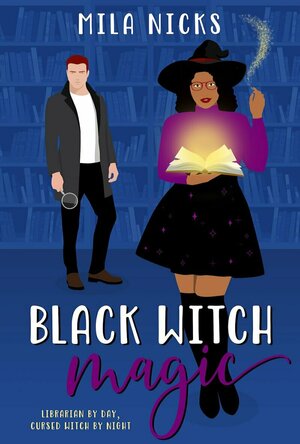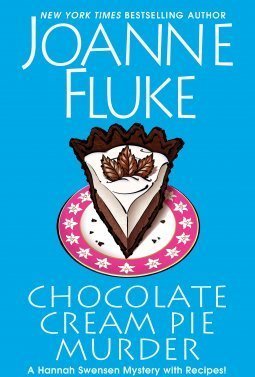Search
Search results
Awix (3310 KP) rated Waves (2019) in Movies
Jan 22, 2020
Powerful, visually dazzling contemporary drama. The lives of an African-American family in Florida begin to unravel when their son, perhaps pushed too hard by a driven father, develops a painkiller addiction and discovers his girlfriend is pregnant. Very much in the same kind of vein as Moonlight, but I found this to be much more powerful in addition to being incredibly creative visually - the screen is filled with a bravura mixture of colour and movement.
For the first hour and half or so, this is like watching a car crash in slow motion: it's almost unbearable to watch the main character go off the rails, but you can't look away either. It concludes with the kind of incident you hear about as a brief item on the news, but here the film puts flesh on those bones and the scale of the tragedy is made clear. The third act is a definite change of pace: no less artfully made or moving, but less focused, and the outcome of the film remains in doubt until the very end. I'm hugely surprised this hasn't featured on the Academy Awards shortlist: a tremendous film in so many ways.
For the first hour and half or so, this is like watching a car crash in slow motion: it's almost unbearable to watch the main character go off the rails, but you can't look away either. It concludes with the kind of incident you hear about as a brief item on the news, but here the film puts flesh on those bones and the scale of the tragedy is made clear. The third act is a definite change of pace: no less artfully made or moving, but less focused, and the outcome of the film remains in doubt until the very end. I'm hugely surprised this hasn't featured on the Academy Awards shortlist: a tremendous film in so many ways.
Lyndsey Gollogly (2893 KP) rated Horror in the Woods in Books
Feb 22, 2021
28 of 250
Kindle
Horror in the Woods
By Lee Mountford
Once read a review will be written via Smashbomb and link posted in comments
First they found a desecrated body…
… then hell followed.
Four friends spend a weekend hiking in the woods, getting back to nature, never imagining they would end up being hunted.
But they soon stumble into the territory of the sick and twisted Webb family—psychopaths with a taste for human meat. And these monsters are hungry.
Will the group make it out of the woods alive? To do so, they will have to face these cannibals head-on, and unravel the secret behind the twisted family’s very existence.
You will love this brutal, gory, and violent horror story, because it raises the tension on every page and will leave you exhausted and drained.
Honestly it was well written,a strong story and decent characters. Also it was very middle of the road when it comes to these types of stories. I knew Tim was one of the from the Start it was made quite obvious. Overall a good and gory if not predictable.
Kindle
Horror in the Woods
By Lee Mountford
Once read a review will be written via Smashbomb and link posted in comments
First they found a desecrated body…
… then hell followed.
Four friends spend a weekend hiking in the woods, getting back to nature, never imagining they would end up being hunted.
But they soon stumble into the territory of the sick and twisted Webb family—psychopaths with a taste for human meat. And these monsters are hungry.
Will the group make it out of the woods alive? To do so, they will have to face these cannibals head-on, and unravel the secret behind the twisted family’s very existence.
You will love this brutal, gory, and violent horror story, because it raises the tension on every page and will leave you exhausted and drained.
Honestly it was well written,a strong story and decent characters. Also it was very middle of the road when it comes to these types of stories. I knew Tim was one of the from the Start it was made quite obvious. Overall a good and gory if not predictable.
Jesters_folly (230 KP) rated Chernobyl Diaries (2012) in Movies
Nov 23, 2020
Contains spoilers, click to show
There have been a few things set in Pripyat, the abandoned town where the workers of the Chernobyl power plant used to live and almost all of them rely on dogs as a big/main threat. After a slow start 'The Chernobyl Diaries' looked like it was going to follow this pattern, however, the dogs soon give away to a bigger but mostly unseen threat.
I found that the film was predictable in parts both in the action and in some of the scenery used, you know that something was going to happen to the van, you can work out who is going to go missing and anyone who knows anything about Pripyat knows there will be at least one scene with the ferris wheel. However there are still plenty of good jump scares and the fact that we never get a clear view of the killers (although one did remind me of the 'Toxic Avenger')
All in all the 'Chernobyl Diaries' is a slightly above average slasher in the vain of 'The Hills Have Eyes' and 'Wrong Turn' with some creepy moments, not to much gore and a plausible set up.
I found that the film was predictable in parts both in the action and in some of the scenery used, you know that something was going to happen to the van, you can work out who is going to go missing and anyone who knows anything about Pripyat knows there will be at least one scene with the ferris wheel. However there are still plenty of good jump scares and the fact that we never get a clear view of the killers (although one did remind me of the 'Toxic Avenger')
All in all the 'Chernobyl Diaries' is a slightly above average slasher in the vain of 'The Hills Have Eyes' and 'Wrong Turn' with some creepy moments, not to much gore and a plausible set up.
Mark @ Carstairs Considers (2488 KP) rated Murder at the Mushroom Festival in Books
Oct 8, 2022
Murder is Mushrooming
The community of Redwood Cove is getting ready for the annual mushroom festival. It includes a mushroom hunting contest that is bring out the worst in some of the residence. Kelly Jackson witnesses several fights, including between the people attending a mushroom class she is hosting at her bed and breakfast. However, she is still surprised when a dead body is found. As she and the Silver Sentinels, a group that works to solve problems in the community, start to investigate, they find motives beyond the mushroom festival. Can they figure out what is happening?
It was nice to get to reconnect with Kelly and her friends. They make a great group of characters, and I love seeing their relationships grow in this book. It was also interesting to watch the suspects evolve as the book progressed. The book managed to surprise me as to who the victim was going to be, something that doesn’t often happen. It kept me guessing on the killer until Kelly figured it out, too. If you are looking for a light cozy, this is the book for you.
It was nice to get to reconnect with Kelly and her friends. They make a great group of characters, and I love seeing their relationships grow in this book. It was also interesting to watch the suspects evolve as the book progressed. The book managed to surprise me as to who the victim was going to be, something that doesn’t often happen. It kept me guessing on the killer until Kelly figured it out, too. If you are looking for a light cozy, this is the book for you.
Bob Mann (459 KP) rated Parasite (2019) in Movies
Feb 9, 2020
It’s so metaphorical.
Everyone said “Go see Parasite”. Everyone said “The one rule about Parasite is that you don’t talk about Parasite”. So I went to see Parasite. So this is a review about Parasite without talking about Parasite.
Kim Ki-Woo (Woo-sik Choi) is a student living with his family in poverty in a sub-basement room, sponging off internet signals and scrounging a living, of sorts, by assembling pizza boxes. Opportunity presents itself when his best friend, the slightly older Min (Seo-joon Park), goes abroad to study. For Min is an English tutor to the up-market Park family’s school-age daughter Da-hye (Ji-so Jung). Not wanting his fellow ‘frat-boys’ to move in on future romance – he’s lined up Ki-Woo as his replacement.
Ki-woo knows he’s lucked in when he visits the swanky Park residence and manages to pull the wool over the eyes of Da-hye’s not too bright mother Yeon-kyo (Yeo-jeong Jo). But the influence of the family’s “lucky rock” doesn’t stop there. Ki-woo sees an opportunity to get jobs for his sister Kim (So-dam Park), his father Ki-taek (Kang-ho Song) and his mother Chung-sook (Hye-jin Jang). And gradually the poor Kim family start to encroach on the rich Park family’s lives.
You might think that’s the story. It’s not. Just when you think you know where the film is going – a gentle comic tale with farcical elements – the movie takes a sudden left turn into The Twilight Zone.
To say more, if you’ve not seen the film, would be cruelty beyond measure. It’s a truly astonishing script, by writer/director Bong Joon Ho, and my nomination for the Oscar for best original screenplay.
It’s the details that get to you. This will be a superb film to watch multiple times. There are fabulous details scattered throughout. You know how the more expensive the car the more “solid” the clunk is as you shut the door? Listen to the sound effect when the Park front door shuts! Look what happens to the “one of a kind” lucky rock!
As for one of my favourite films from last year – “The Farewell” – you very quickly get to accept and embrace the subtitles. YOU MUST NOT LET THIS PUT YOU OFF. This is a masterpiece of cinema, well-deserving of its multiple Oscar nominations and its Cannes Palme d’Or award. At 132 minutes, it’s not a short film, but seldom have two hours flown by faster. It’s totally gripping. At times hysterically funny; at times shocking. A class struggle movie of a calibre that Ken Loach would never have imagined!
Gripes? I had just one. An action near the end of the movie seems bizarrely out of character and was a “WTF” moment that I didn’t think the film needed. However, it did set up a wonderful story-telling finale that I will think about for many months.
It provoked that seldom found reaction in the cinema when the end-titles ran. A hubbub of chatter and appreciation.
It comes with a highly recommended from me.
For the full graphical review, check out https://bob-the-movie-man.com/2020/02/09/one-manns-movies-film-review-parasite-2020/.
Kim Ki-Woo (Woo-sik Choi) is a student living with his family in poverty in a sub-basement room, sponging off internet signals and scrounging a living, of sorts, by assembling pizza boxes. Opportunity presents itself when his best friend, the slightly older Min (Seo-joon Park), goes abroad to study. For Min is an English tutor to the up-market Park family’s school-age daughter Da-hye (Ji-so Jung). Not wanting his fellow ‘frat-boys’ to move in on future romance – he’s lined up Ki-Woo as his replacement.
Ki-woo knows he’s lucked in when he visits the swanky Park residence and manages to pull the wool over the eyes of Da-hye’s not too bright mother Yeon-kyo (Yeo-jeong Jo). But the influence of the family’s “lucky rock” doesn’t stop there. Ki-woo sees an opportunity to get jobs for his sister Kim (So-dam Park), his father Ki-taek (Kang-ho Song) and his mother Chung-sook (Hye-jin Jang). And gradually the poor Kim family start to encroach on the rich Park family’s lives.
You might think that’s the story. It’s not. Just when you think you know where the film is going – a gentle comic tale with farcical elements – the movie takes a sudden left turn into The Twilight Zone.
To say more, if you’ve not seen the film, would be cruelty beyond measure. It’s a truly astonishing script, by writer/director Bong Joon Ho, and my nomination for the Oscar for best original screenplay.
It’s the details that get to you. This will be a superb film to watch multiple times. There are fabulous details scattered throughout. You know how the more expensive the car the more “solid” the clunk is as you shut the door? Listen to the sound effect when the Park front door shuts! Look what happens to the “one of a kind” lucky rock!
As for one of my favourite films from last year – “The Farewell” – you very quickly get to accept and embrace the subtitles. YOU MUST NOT LET THIS PUT YOU OFF. This is a masterpiece of cinema, well-deserving of its multiple Oscar nominations and its Cannes Palme d’Or award. At 132 minutes, it’s not a short film, but seldom have two hours flown by faster. It’s totally gripping. At times hysterically funny; at times shocking. A class struggle movie of a calibre that Ken Loach would never have imagined!
Gripes? I had just one. An action near the end of the movie seems bizarrely out of character and was a “WTF” moment that I didn’t think the film needed. However, it did set up a wonderful story-telling finale that I will think about for many months.
It provoked that seldom found reaction in the cinema when the end-titles ran. A hubbub of chatter and appreciation.
It comes with a highly recommended from me.
For the full graphical review, check out https://bob-the-movie-man.com/2020/02/09/one-manns-movies-film-review-parasite-2020/.
Andy K (10823 KP) rated Naked Lunch (1991) in Movies
Sep 28, 2019
Exterminate all rational thought.
The closing line from Roger Ebert's TV review of Naked Lunch was "I love what he did, but I hate it!"
Director David Cronenberg has always been known as someone who pushes the envelope of film storytelling to its limit. This is not more on display in maybe any of his films more than it is in Naked Lunch.
In 1952 New York, pest exterminator Bill Lee has an problem in his life. His wife, Joan, has begun using and is now addicted to his "bug powder" he uses in his job. She shoots it into her veins for her narcotics addiction. She is so full of the intoxicant she can even breath on cockroaches to kill them . Bill is arrested for his involvement and begins to trip himself.
His high continues as he now believes he is a secret agent who has been told he must murder his wife. He returns home and actually accidentally does so in a case of ironic accomplishment.
His trip takes him to North Africa where he meets a slew of bizarre and unsavory characters in his attempt to complete his ongoing "mission". He writes a series of articles using a typewriter which continually morphs into a giant cockroach. He finds another man who lets him borrow his typewriter in which his living typewriter is maimed and killed by Bill's device. Another man Bill meets may actually be a giant killer centipede in disguise!
If this doesn't make a lot of sense, I don't think it is really supposed to. Cronenberg's film, according to the writer/director himself, is an amalgam of not only the source material novel by William S. Burroughs, but also other works by the author and even some aspects of Burroughs' own life including the wife shooting incident.
Pretty much right from the start you know you are in for something very unusual when Lee starts having a conversation with his bug typewriter 15 minutes into the film. Then add another conversation with a giant "mugwump" sitting at a bar, a bug that bizarrely speaks in a voice from his bulbous anus and the fore mentioned giant centipede, you have a film in which you never are fully aware of what is real or what has become a drug-filled fantasy.
Cronenberg's fascination with the "body horror" style of film goes way back to some of his earlier films including The Brood and Scanners as well as They Fly remake. All his skill at creating one of a kind images are on full display here and you can't take your eyes off the screen as a result.
The entire cast really inhabit their roles including Peter Weller (who turned down Robocop 3 for this role) as Lee. His monotone, stoic delivery and minimalist physicality is perfect for this role. Throw in supporting performances by Ian Holm, Judy Davis and even Roy Scheider and you have found a perfect ensemble for this strange acid trip of a film.
The jazz soundtrack is also legendary including saxophone maestro Ornette Coleman off a score from Howard Shore. The improvisation and inconsistent melodies are a partnership with the unusual story taking place and form a symbiosis with the film.
You definitely leave the film wondering what you have just watched; however, sometimes that s a good thing. The director makes you think about what you have watched and decide for yourself the important elements what what is actually true.
I wish more films were like this!
Director David Cronenberg has always been known as someone who pushes the envelope of film storytelling to its limit. This is not more on display in maybe any of his films more than it is in Naked Lunch.
In 1952 New York, pest exterminator Bill Lee has an problem in his life. His wife, Joan, has begun using and is now addicted to his "bug powder" he uses in his job. She shoots it into her veins for her narcotics addiction. She is so full of the intoxicant she can even breath on cockroaches to kill them . Bill is arrested for his involvement and begins to trip himself.
His high continues as he now believes he is a secret agent who has been told he must murder his wife. He returns home and actually accidentally does so in a case of ironic accomplishment.
His trip takes him to North Africa where he meets a slew of bizarre and unsavory characters in his attempt to complete his ongoing "mission". He writes a series of articles using a typewriter which continually morphs into a giant cockroach. He finds another man who lets him borrow his typewriter in which his living typewriter is maimed and killed by Bill's device. Another man Bill meets may actually be a giant killer centipede in disguise!
If this doesn't make a lot of sense, I don't think it is really supposed to. Cronenberg's film, according to the writer/director himself, is an amalgam of not only the source material novel by William S. Burroughs, but also other works by the author and even some aspects of Burroughs' own life including the wife shooting incident.
Pretty much right from the start you know you are in for something very unusual when Lee starts having a conversation with his bug typewriter 15 minutes into the film. Then add another conversation with a giant "mugwump" sitting at a bar, a bug that bizarrely speaks in a voice from his bulbous anus and the fore mentioned giant centipede, you have a film in which you never are fully aware of what is real or what has become a drug-filled fantasy.
Cronenberg's fascination with the "body horror" style of film goes way back to some of his earlier films including The Brood and Scanners as well as They Fly remake. All his skill at creating one of a kind images are on full display here and you can't take your eyes off the screen as a result.
The entire cast really inhabit their roles including Peter Weller (who turned down Robocop 3 for this role) as Lee. His monotone, stoic delivery and minimalist physicality is perfect for this role. Throw in supporting performances by Ian Holm, Judy Davis and even Roy Scheider and you have found a perfect ensemble for this strange acid trip of a film.
The jazz soundtrack is also legendary including saxophone maestro Ornette Coleman off a score from Howard Shore. The improvisation and inconsistent melodies are a partnership with the unusual story taking place and form a symbiosis with the film.
You definitely leave the film wondering what you have just watched; however, sometimes that s a good thing. The director makes you think about what you have watched and decide for yourself the important elements what what is actually true.
I wish more films were like this!
Phillip McSween (751 KP) rated Point Break (1991) in Movies
Jan 17, 2018
Not Bad
My buddy who recommended Point Break asked for my thoughts almost immediately after I watched it. In a word: Fun. No, it's not going to blow your mind or give you chills, but it's a great film to watch if you're just trying to have a good time. It's like Fast and the Furious before Fast and the Furious became Fast and the Furious. Oh yeah, and with surfer dudes.
Point Break can be a bit over the top at times. One scene in particular involving a chase scene where someone literally threw a dog at Keanu Reeves left me scratching my head and chuckling, but I'm pretty sure I wasn't supposed to be laughing at that point. The plot holes threw me off just as much. Spoiler Alert In the Form of a Question: After Johnny Utah's cover is blown, why the hell is he still hanging out with the bankrobbers?
After a slow start, I managed to find myself engaged in what was unfolding. Keanu Reeves got off to a slow start as well in his role as Johnny Utah, but found his way midway through. It was almost like this was the film where he learned how to act, but director Kathryn Bigelow didn't notice until they were well past the point of reshoots. It doesn't kill the movie, not by a longshot, especially considering its setting.
The ending was extremely ambiguous and, ten years ago, probably would have ruined the entire film for me. Now, it left me asking myself, "What does this mean exactly?" My answer in a sec...
For those of you like me that are new to the film, Point Break is the story of a detective trying to take down a gang of surfers that have become notorious on the bank-robbing circuit as the Ex-Presidents. The film has some fun action sequences, including a house raid midway through that I really enjoyed. I also thought Bigelow captured some powerful shots when it came to expressing the love and power of the ocean. I would love to see this film shot in IMAX today. And I said this film, not the god-awful remake. My favorite shot takes place at a gas station. Bodhi (Patrick Swayze) is burning a car (destroying evidence) to the ground using a gas pump and a lighter. For some reason, it reminded me of the one scene I enjoyed in Batman Vs. Superman: Dawn of Justice where the courtroom explodes and just Superman is left among the flames. Scenes like this, no matter how good or bad a film is, stay etched in your memory for a long time.
So what were my thoughts on the ending? I feel like the waves got the better of Utah and he succumbed to their call. He got a taste of a life that was more easygoing and peaceful. Less rules and restrictions. Ultimately, it was enough for him to throw everything else (badge included) away. And yes, I think he does end up staying with Tyler (Lori Petty).
Glad I saw this film. I give it a 77.
Point Break can be a bit over the top at times. One scene in particular involving a chase scene where someone literally threw a dog at Keanu Reeves left me scratching my head and chuckling, but I'm pretty sure I wasn't supposed to be laughing at that point. The plot holes threw me off just as much. Spoiler Alert In the Form of a Question: After Johnny Utah's cover is blown, why the hell is he still hanging out with the bankrobbers?
After a slow start, I managed to find myself engaged in what was unfolding. Keanu Reeves got off to a slow start as well in his role as Johnny Utah, but found his way midway through. It was almost like this was the film where he learned how to act, but director Kathryn Bigelow didn't notice until they were well past the point of reshoots. It doesn't kill the movie, not by a longshot, especially considering its setting.
The ending was extremely ambiguous and, ten years ago, probably would have ruined the entire film for me. Now, it left me asking myself, "What does this mean exactly?" My answer in a sec...
For those of you like me that are new to the film, Point Break is the story of a detective trying to take down a gang of surfers that have become notorious on the bank-robbing circuit as the Ex-Presidents. The film has some fun action sequences, including a house raid midway through that I really enjoyed. I also thought Bigelow captured some powerful shots when it came to expressing the love and power of the ocean. I would love to see this film shot in IMAX today. And I said this film, not the god-awful remake. My favorite shot takes place at a gas station. Bodhi (Patrick Swayze) is burning a car (destroying evidence) to the ground using a gas pump and a lighter. For some reason, it reminded me of the one scene I enjoyed in Batman Vs. Superman: Dawn of Justice where the courtroom explodes and just Superman is left among the flames. Scenes like this, no matter how good or bad a film is, stay etched in your memory for a long time.
So what were my thoughts on the ending? I feel like the waves got the better of Utah and he succumbed to their call. He got a taste of a life that was more easygoing and peaceful. Less rules and restrictions. Ultimately, it was enough for him to throw everything else (badge included) away. And yes, I think he does end up staying with Tyler (Lori Petty).
Glad I saw this film. I give it a 77.
Merissa (13792 KP) rated Black Witch Magic (Paranormal Hunters #1) in Books
Oct 27, 2020
Black Witch Magic is the first book in the Paranormal Hunters series and we are introduced to Aiden (the paranormal hunter) and Selene (the witch). Aiden is the sceptic who tries to debunk paranormal mysteries. Selene is the witch cursed never to leave her hometown or find/keep love.
Although I enjoyed this story for the most part, there are some parts that just didn't work for me. For a start, the whole build-up to the wicked witch Luna? What did she actually do that was that bad? Okay, so I know she slept with someone who was engaged but is that it? Why did she get all the flak and not the other witch who disappeared at the same time? And for that matter, why were the Blackstones black-balled? There were no explanations about them or their family tree or even what happened to make them the scape-goats in the first place.
I did enjoy the differences given between being a Lunar or a Green Witch although I also found it a bit strange that Bibi, Noelle and Selene didn't seem to know anything else about being a witch other than what they made up themselves. Bibi and Noelle aren't cursed to stay within the town limits but it reads like they are.
There were other parts in the writing that were repeated over and over - Selene's address is one example. How many addresses does she have? Just the one so why is it repeated instead of just saying she went 'home'? Also, I wear glasses and I can tell you, if my glasses fell down my nose as often as Selene's did, I'd be going back to the Optometrist and getting the fitting sorted out. 'Fleshy thighs' is another description that was repeated too often for my comfort.
There are a few supporting characters in this book. Noelle and Eddie both have their own issues but neither of them come across as particularly tactful or sensitive to their so-called best friends. I thought Officer Gustin would play a bigger part than he did but he came good in the end.
This is classed as adult but most of the time the only thing described is the kissing. There are a couple of scenes that are steamy but they still don't go into major detail so I didn't think they were that bad.
The angst level is fairly low in here with most of it being between Eddie and Aiden and the filming of the episode. Or between Noelle and Selene when they don't agree on things but that's about it.
Overall, this was a light, entertaining read with some minor things I couldn't help but take notice of. It turns out this will be part of a series/serial and ends with a "To Be Continued." If this is what you are looking for then I can recommend this read.
* A copy of this book was provided to me with no requirements for a review. I voluntarily read this book, and the comments here are my honest opinion. *
Merissa
Archaeolibrarian - I Dig Good Books!
Although I enjoyed this story for the most part, there are some parts that just didn't work for me. For a start, the whole build-up to the wicked witch Luna? What did she actually do that was that bad? Okay, so I know she slept with someone who was engaged but is that it? Why did she get all the flak and not the other witch who disappeared at the same time? And for that matter, why were the Blackstones black-balled? There were no explanations about them or their family tree or even what happened to make them the scape-goats in the first place.
I did enjoy the differences given between being a Lunar or a Green Witch although I also found it a bit strange that Bibi, Noelle and Selene didn't seem to know anything else about being a witch other than what they made up themselves. Bibi and Noelle aren't cursed to stay within the town limits but it reads like they are.
There were other parts in the writing that were repeated over and over - Selene's address is one example. How many addresses does she have? Just the one so why is it repeated instead of just saying she went 'home'? Also, I wear glasses and I can tell you, if my glasses fell down my nose as often as Selene's did, I'd be going back to the Optometrist and getting the fitting sorted out. 'Fleshy thighs' is another description that was repeated too often for my comfort.
There are a few supporting characters in this book. Noelle and Eddie both have their own issues but neither of them come across as particularly tactful or sensitive to their so-called best friends. I thought Officer Gustin would play a bigger part than he did but he came good in the end.
This is classed as adult but most of the time the only thing described is the kissing. There are a couple of scenes that are steamy but they still don't go into major detail so I didn't think they were that bad.
The angst level is fairly low in here with most of it being between Eddie and Aiden and the filming of the episode. Or between Noelle and Selene when they don't agree on things but that's about it.
Overall, this was a light, entertaining read with some minor things I couldn't help but take notice of. It turns out this will be part of a series/serial and ends with a "To Be Continued." If this is what you are looking for then I can recommend this read.
* A copy of this book was provided to me with no requirements for a review. I voluntarily read this book, and the comments here are my honest opinion. *
Merissa
Archaeolibrarian - I Dig Good Books!
Haley Mathiot (9 KP) rated Lone Star Legend in Books
Apr 27, 2018
Lone Star Legend by Gwendolyn Zepeda
Genre: YA Fiction
Rating: 2.5, DNF
Sandy S. has a second identity online—she blogs at a personal blog as Miss TragiComic Texas, and works for a website called Nacho Papi. Sandy is good at living her dual-identities and keeping them separate. But when people start connecting the the personal blog and the new website, and then recognizing her on the streets from the videos…
(From back of the book:) No matter how many passwords and aliases we use, there really is no such thing as privacy when you live your life online. Celebrities expect this, but what about the average person? Gwendolyn Zepeda’s novel plays with this idea of public vs. private and what happens when those lines get crossed.
I found Lone Star Legend to be very slow. It was hard to get into, and even halfway through the book I wasn’t sure what the actual plot line was.
There is a lot of drama. She breaks up with her boyfriend. Her boyfriend’s students find her personal blog and her rants about him and it embarrasses him. People recognize her in the coffee shop from TV. The man she interviews on a whim becomes the new biggest internet phenomenon, but he doesn’t want his photo on the t-shirts that she has already started to sell. These are just a few things that happen in the story, and none of it really leads anywhere.
And if a story doesn’t lead anywhere, and I have no desire to finish it, I’m not going to. Because I could be reading other things.
With that in mind, my positive comments include these: Zepeda is a pretty good writer. The writing and the dialogue is witty and fresh and alive and pretty funny at times. There were some great lines, great scenarios, and great laugh-out-loud sections… there just weren’t enough to keep me reading. The characters are well developed and defined and likeable, and it’s a pretty enjoyable read… little bits at a time.
But Lone Star Legend just wasn’t my thing, I guess. It kind of stinks, too, because I love the idea. As a blogger, people I know personally always tell me about stuff they read on my blog… but however much I wanted to enjoy it, I just couldn’t get into it.
Genre: YA Fiction
Rating: 2.5, DNF
Sandy S. has a second identity online—she blogs at a personal blog as Miss TragiComic Texas, and works for a website called Nacho Papi. Sandy is good at living her dual-identities and keeping them separate. But when people start connecting the the personal blog and the new website, and then recognizing her on the streets from the videos…
(From back of the book:) No matter how many passwords and aliases we use, there really is no such thing as privacy when you live your life online. Celebrities expect this, but what about the average person? Gwendolyn Zepeda’s novel plays with this idea of public vs. private and what happens when those lines get crossed.
I found Lone Star Legend to be very slow. It was hard to get into, and even halfway through the book I wasn’t sure what the actual plot line was.
There is a lot of drama. She breaks up with her boyfriend. Her boyfriend’s students find her personal blog and her rants about him and it embarrasses him. People recognize her in the coffee shop from TV. The man she interviews on a whim becomes the new biggest internet phenomenon, but he doesn’t want his photo on the t-shirts that she has already started to sell. These are just a few things that happen in the story, and none of it really leads anywhere.
And if a story doesn’t lead anywhere, and I have no desire to finish it, I’m not going to. Because I could be reading other things.
With that in mind, my positive comments include these: Zepeda is a pretty good writer. The writing and the dialogue is witty and fresh and alive and pretty funny at times. There were some great lines, great scenarios, and great laugh-out-loud sections… there just weren’t enough to keep me reading. The characters are well developed and defined and likeable, and it’s a pretty enjoyable read… little bits at a time.
But Lone Star Legend just wasn’t my thing, I guess. It kind of stinks, too, because I love the idea. As a blogger, people I know personally always tell me about stuff they read on my blog… but however much I wanted to enjoy it, I just couldn’t get into it.
Midge (525 KP) rated Chocolate Cream Pie Murder in Books
Feb 26, 2019
Captivating Cozy Mystery!
“Chocolate Cream Pie Murder” is the twenty-fourth book in the Hannah Swensen Series by the author, Joanne Fluke. Why did I want to read this novel? Well, I love to curl up on the sofa on a dark winter’s night, or any time, really, with a mug of hot chocolate and a good cozy mystery and if it’s about food, as this one is, then so much the better!
I haven’t read any of the other books in this series yet, however, I don’t think that this spoilt my enjoyment of this novel. That said, there is nothing more exciting than picking up a book which is the first in a new series.
When Hannah’s Bakery, The Cookie Jar, becomes the setting of a TV special about movies filmed in Minnesota, Hannah hopes the spotlight will be shining on her bakery, and not the unsavoury scandal about her personal life. But that’s impossible with a disturbing visit from someone she once believed was her one and only love, a group of bodyguards following her every move, and a murder victim in her bedroom. Now, moving to her mother Delores’ penthouse, Hannah and an old flame team up to solve a case and as suspects emerge and secrets hit close to home, Hannah must find the killer prowling around Lake Eden before someone takes a slice out of her…
I liked that the opening chapters drew me into the story and captured my attention immediately. Although I had to wait a while before an actual murder took place there was still a lot going on. I found many of the characters very funny and easy to relate to, particularly Hannah herself and many of the other characters in the book were extremely amusing and unusual. I even liked the bad guy, the one everyone loves to hate.
The book had a natural, steady pace, and even though the murder occurred towards the end, I was kept guessing until the surprising reveal. Delightful and entertaining “Chocolate Cream Pie Murder” is a quick, light read for all cozy mystery fans.
{Thank you to NetGalley and Kensington Publishing for the free copy of this novel and for giving me the opportunity to provide an honest review.}
I haven’t read any of the other books in this series yet, however, I don’t think that this spoilt my enjoyment of this novel. That said, there is nothing more exciting than picking up a book which is the first in a new series.
When Hannah’s Bakery, The Cookie Jar, becomes the setting of a TV special about movies filmed in Minnesota, Hannah hopes the spotlight will be shining on her bakery, and not the unsavoury scandal about her personal life. But that’s impossible with a disturbing visit from someone she once believed was her one and only love, a group of bodyguards following her every move, and a murder victim in her bedroom. Now, moving to her mother Delores’ penthouse, Hannah and an old flame team up to solve a case and as suspects emerge and secrets hit close to home, Hannah must find the killer prowling around Lake Eden before someone takes a slice out of her…
I liked that the opening chapters drew me into the story and captured my attention immediately. Although I had to wait a while before an actual murder took place there was still a lot going on. I found many of the characters very funny and easy to relate to, particularly Hannah herself and many of the other characters in the book were extremely amusing and unusual. I even liked the bad guy, the one everyone loves to hate.
The book had a natural, steady pace, and even though the murder occurred towards the end, I was kept guessing until the surprising reveal. Delightful and entertaining “Chocolate Cream Pie Murder” is a quick, light read for all cozy mystery fans.
{Thank you to NetGalley and Kensington Publishing for the free copy of this novel and for giving me the opportunity to provide an honest review.}

